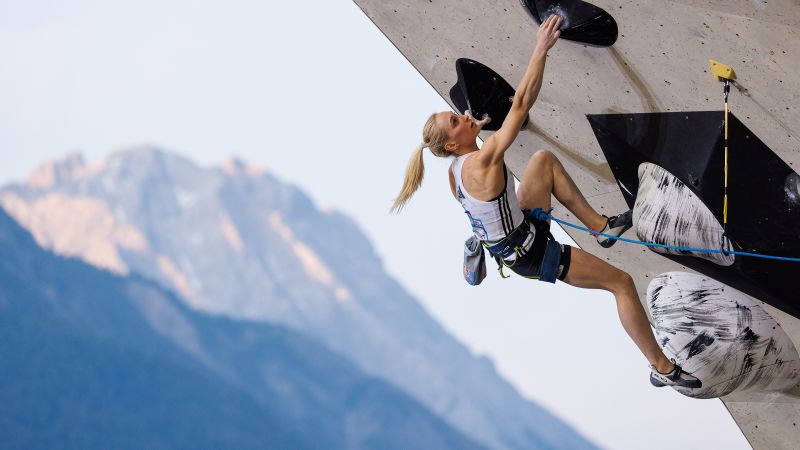CNN
—
As an Olympic gold medalist and an eight-time world champion, almost no one knows the world of competitive climbing like Janja Garnbret.
Having risen to the summit of the sport, the Slovenian now wants to use her platform to raise awareness of “cultural” pitfalls in climbing that she says are contributing to a widespread issue with eating disorders.
The problem stems, she says, from an outdated ideology that weighing less means you climb faster. Such a mindset has created an environment where young athletes start skipping or cutting down on meals, she says, sometimes to disastrous effect.
Despite not having issues with eating disorders herself, she is more than aware of friends and fellow competitors who have damaged their bodies in the pursuit of a lighter frame.
“This is a cultural thing in climbing, it’s integrated in our brains that the lighter you are, the stronger you are,” Garnbret tells CNN Sport, recognizing that weight does have some role to play in the sport.
“Of course you don’t want to weigh too much, but you don’t want to weigh too little and so you just have to be something in the middle.
“I’m a strong believer that you can do climbing, or any sport, in a healthy way.”
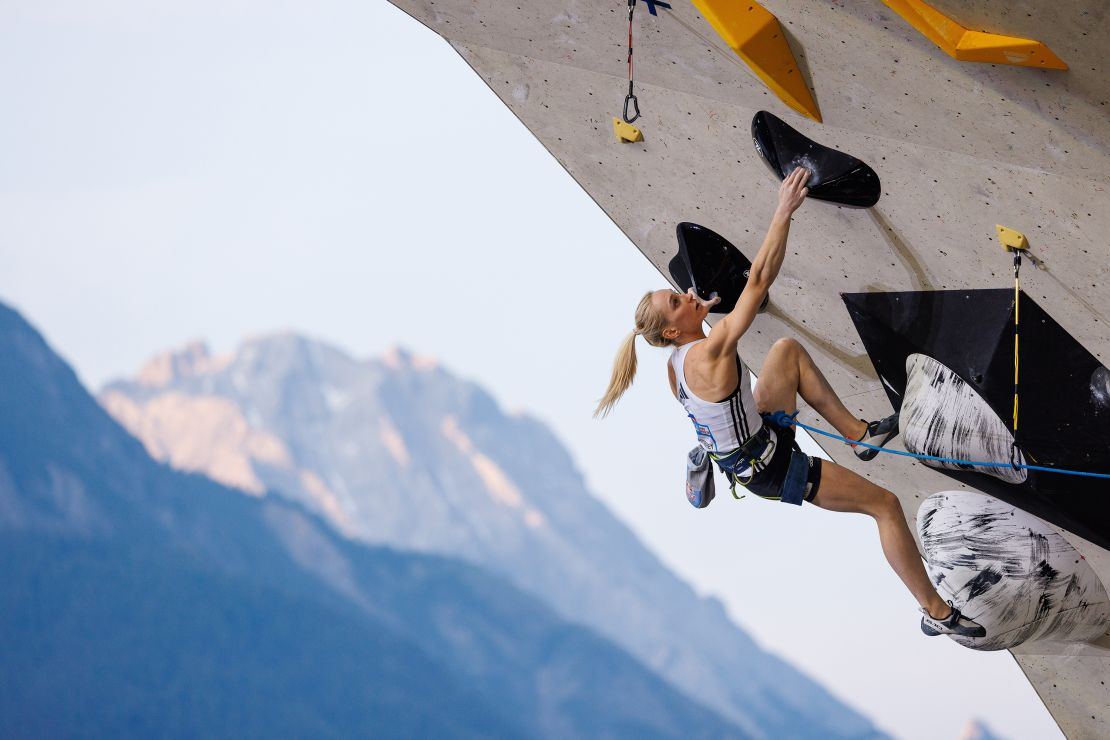
‘I had friends who fell into this trap’
Garnbret says that her climbing role models growing up were all “super skinny” which only served to reinforce the notion that you had to lose weight in order to compete on the world level.
“When you see someone winning, you want to be like them. You want to have results like them. You want to look like them,” she says.
“I was the same, but luckily I didn’t fall into this trap. I had people around me to guide me on the right path.
“I had friends who fell into this trap, and I tried to help them in any way possible. I was trying hard for, let’s say, two years to help them get out of it, but I couldn’t help. It was really hard for me to see them destroying themselves, mentally and physically.”
It was experiences such as this that prompted Garnbret to post a message on Instagram in July 2023 about eating disorders.
“Do we want to raise the next generation of skeletons? Brittle hair, dull expressions, trying to show everyone you are ok but are you really?” she wrote in a lengthy post which looked to lift the veil on the once taboo topic.
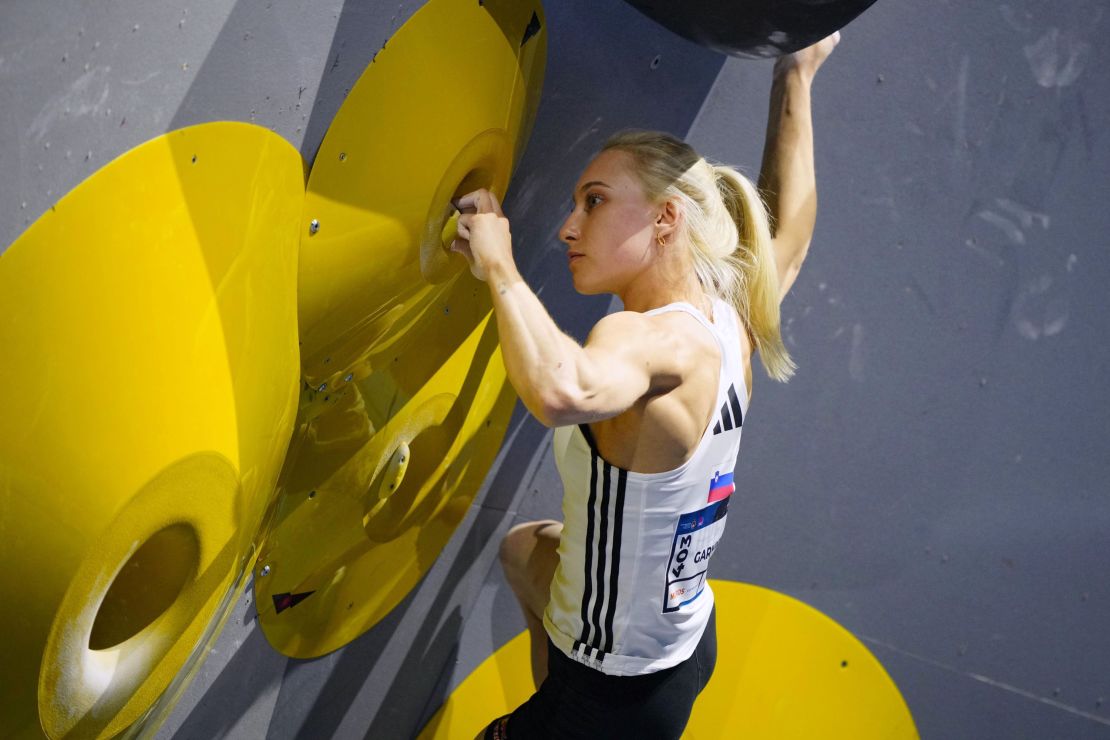
The post sparked a huge response, sending ripples throughout the climbing community and attracted support from the likes of US rock climber Sasha DiGiulian.
In her message, Garnbret spoke about Relative Energy Deficiency in Sport (REDs) – a syndrome that occurs when someone of any gender has overtrained and/or undereaten for a prolonged period in an attempt to improve their athletic performance, often without knowing the dangers of failing to compensate for the energy they expend in training, racing and their daily lives.
Left untreated, medical experts say REDs can damage an athlete’s metabolism, their bone health – leading to more fractures – their immune system, their cardiovascular health, their menstrual cycle, and mental health, as well as their athletic performance.
Changing attitudes
The International Federation of Sport Climbing (IFSC) says it is aware of the issue and earlier this year implemented “comprehensive regulations” related to REDs, putting in place a new event policy for athletes participating this season.
The IFSC said it’s the first international federation to introduce such measures, which includes a screening procedure that will be fully operational by Paris 2024.
“The new system underscores our commitment to the health of our athletes,” IFSC President Marco Scolaris said in statement earlier this year.
“The policy will not only help us determine which athletes are most at risk, it will also help raise awareness of the issue, provide help to those who need it, and ensure the rights of each athlete are protected.”
The 24-year-old Garnbret knows changing attitudes will take time, but hopes things will improve for the new generation following in her footsteps.
“I feel very honoured and very happy to be in this position because I always want to give something back to climbing, because climbing gave me so much in general,” she says when asked how she deals with being a role model.
“I wanted to give back to the community, to the younger generation, because all the knowledge that I have, I want to pass on to youngsters. I want to help them achieve their goals, whatever that is.”
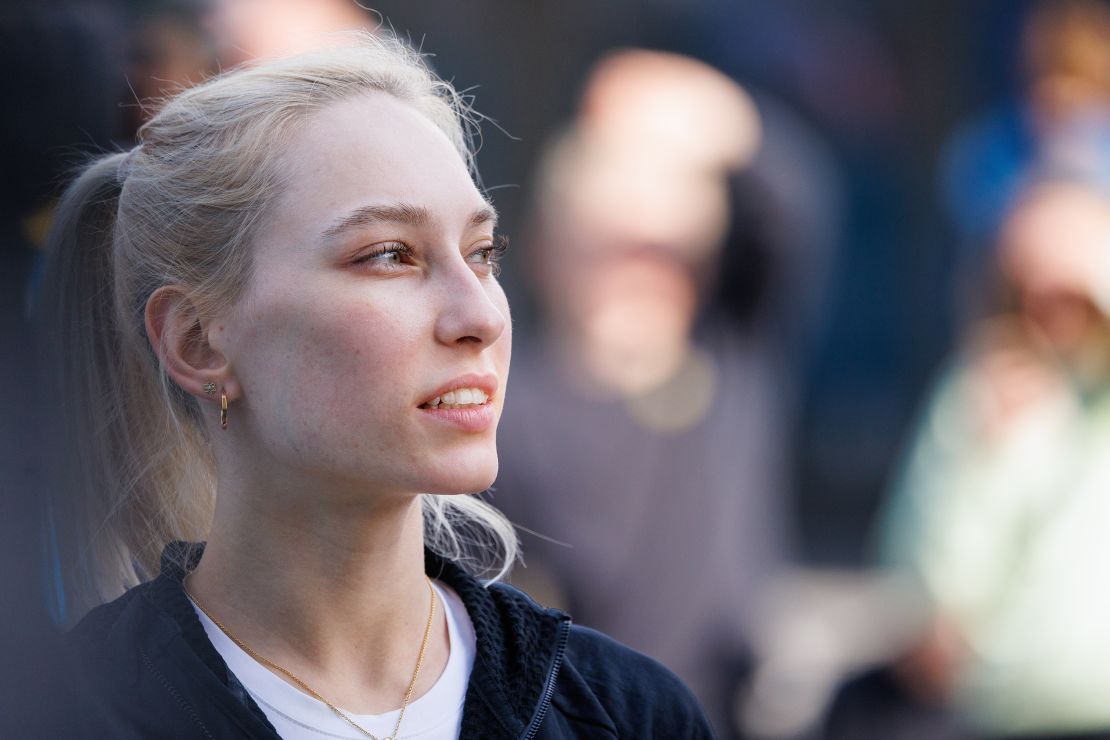
The last year has also been tough from Garnbret after she was forced to take a prolonged absence from competition after breaking her toe.
The injury occurred just as the Olympic qualifying season was getting underway, and it wasn’t immediately clear how long the Slovenian would need to rest for and Garnbret says the enforced absence affected her mental health.
“The injury last year was the hardest time in my career,” she reflects. “It was not easy at all. It was my first serious injury […] and I didn’t really know how to deal with it at the beginning.
“I had many doubts, many negative thoughts. I wasn’t really sure if I would ever be on the top again or if I would ever be able to climb normally again.”
Although unable to compete fully, the injury didn’t completely stop Garnbret from getting on the climbing wall and she eventually started training to a degree with a boot cast on, focusing her efforts on her upper body strength.
Olympic dreams
Garnbret now credits the experience of rehabilitating from the injury as making her a stronger climber.
“I just had to wait for my toe to get better, and then I could climb better than I was before,” she says.
“I learned a lot about myself in this period, a lot about training, a lot about how I’m dealing with things when things don’t go according to plan. I got a deeper understanding of myself and training.”
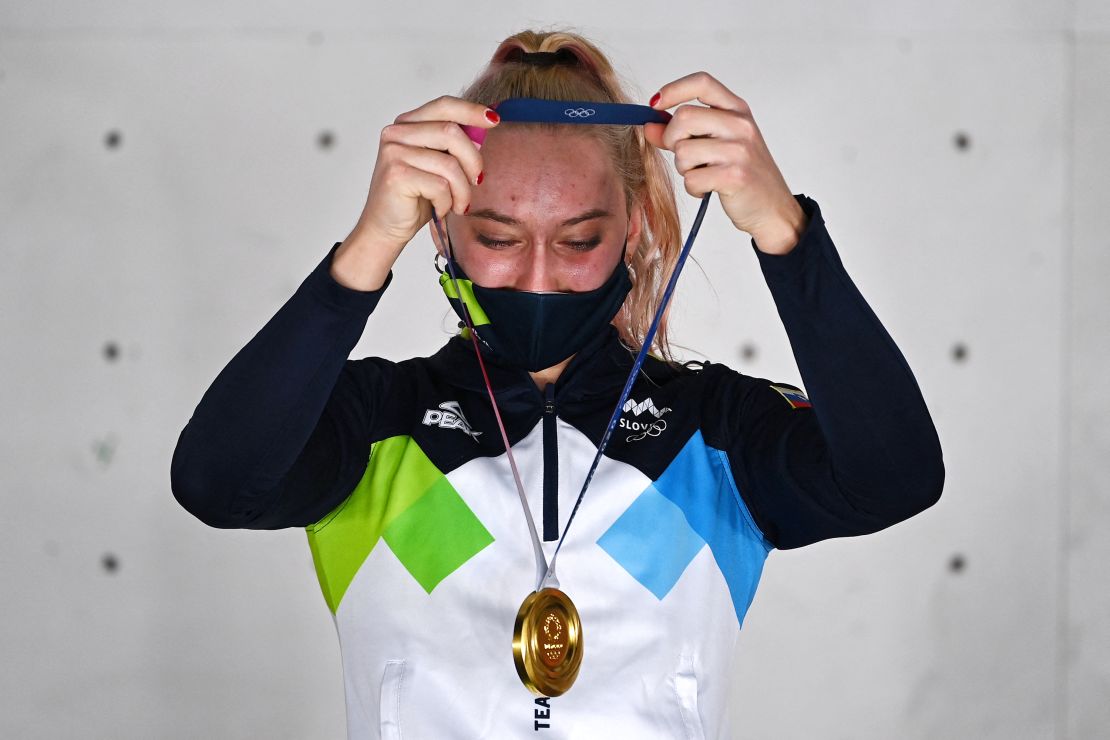
With one Olympic medal in her pocket – Garnbret secured the combined gold at Tokyo 2020 – the Slovenian is hungry for more.
She still has that fire in her eyes, and hopes she can be as dominant in Paris after already qualifying for the Games.
“Once you have one Olympic medal, you always want another one. So I’m working really hard. I just want to be the best. I think this is what keeps me going. I always want to stay on top,” she said.
“I feel like I haven’t reached my full potential mentally, so I can still keep working on that.”


